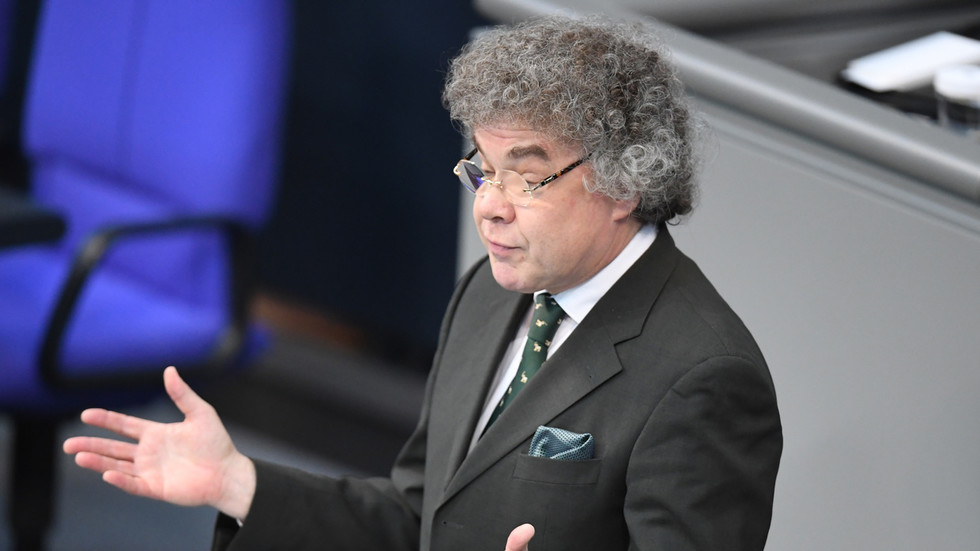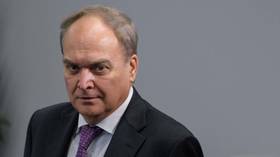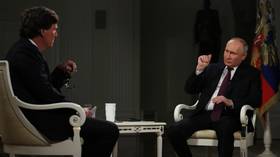
Berlin should talk to Moscow instead of sending weapons to Kiev, Matthias Moosdorf has said

FILE PHOTO: German MP Matthias Moosdorf © Global Look Press / Marco Rauch
Nations willing to bet on military force alone in their relations with Moscow are bound to suffer a defeat, Matthias Moosdorf, a member of the German Bundestag’s Foreign Affairs Committee, warned at a parliamentary session on Thursday.
The lawmaker voiced his concerns as MPs were about to approve a resolution calling on Berlin to send more weapons to Kiev. “One has to make it absolutely clear: ten years of the [Ukraine] war teach us [that] those who mess with Russia end up either as Napoleon in 1812 or, even worse, as in 1945,” Moosdorf said, referring to Nazi Germany’s defeat at the hands of the Soviet Union and the Allied Forces.
The MP, himself a member of the right-wing Alternative for Germany (AfD) party, then said that he would particularly like to draw his fellow legislators’ attention to these historical facts, in light of the continued “brazen demands” for Taurus missiles to be delivered to Kiev.
Ukraine submitted a formal request last May for the missiles, which have a range of up to 500 kilometers (310 miles) and can penetrate bunker defenses. Berlin, which has otherwise emerged as the second-largest military donor to Kiev amid its ongoing conflict with Moscow, was reluctant to meet this particular demand.

Read more
Chancellor Olaf Scholz’s government was reportedly concerned that the possible use of the weapons inside Russia’s borders could potentially draw Germany closer to the Ukraine conflict. Proposals specifically mentioning this particular missile type had been previously rejected by lawmakers.
On Thursday, a fresh proposal submitted by the Conservative ‘Union’ opposition bloc was voted down by 480 to 182. The MPs nonetheless adopted another resolution submitted by three government coalition parties, which did not mention Taurus missiles by name but called on Berlin to deliver further longer-range weapons to Ukraine. The deliveries should enable attacks on “strategically important targets far in the rear” of Russian forces, the text of the document said, according to AP.

Read more
The resolution, which was non-binding, was supported by 382 MPs, while 284 lawmakers opposed it and two abstained.
Commenting on other Western nations’ policies in the ongoing conflict, Moosdorf maintained that efforts to resolve the issue through political or diplomatic means were “lacking.” He then called on Scholz to “meet [Russian President Vladimir] Putin and talk” to him. He also criticized the fact that Russia had not been invited to the Munich Security Conference.
Moscow has repeatedly stated that it is ready for peace talks as long as the situation on the ground is taken into account. In autumn 2022, the two republics of Donetsk and Luhansk, along with two other Ukrainian territories, officially joined Russia following a series of referendums.
Kiev has ruled out any negotiations with Moscow on multiple occasions. Ukrainian President Vladimir Zelensky signed a decree last autumn banning any talks with the current Kremlin leadership. He also put forward his own peace plan, demanding that all Russian troops withdraw from all the territories within Ukraine’s 1991 borders before any talks could commence. The Kremlin has rejected Kiev’s “peace formula’ as absurd.




